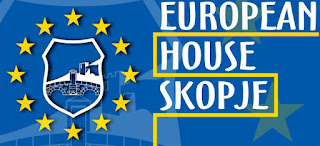The European Commission has finalised its plans for assistance to the candidate and potential candidate countries for 2007-2009. It adopted on June 20 the strategy for Croatia under its Instrument for Pre-Accession Assistance, after earlier adopting similar strategies for the Republic of Macedonia, Turkey, Albania, Bosnia and Herzegovina, Montenegro, Serbia and Kosovo. The overall indicative amount for the period for all these countries totals €3.96 billion.
Financial assistance to those countries aims to help them enhance political and economic reform and development, on their path towards EU membership. Enlargement Commissioner Olli Rehn said: "The crux of the matter in the EU's enlargement process is that the political, economic and institutional reforms lead to results on the ground, in each and every country. They have to deliver in this challenging process. But they are not alone, the EU stands by their side with political support, technical advice and substantial financial assistance to help them carrying out these reforms. I welcome the adoption of all strategies that is necessary to transform the financial commitment into concrete projects to improve the lives of citizens on the Western Balkans and in Turkey".
For Croatia, the pre-accession assistance strategy is concentrated on institution building and preparation for the implementation of the EU's common agricultural policy and cohesion policy. For the Republic of Macedonia, it aims to consolidate reform of public administration, the judiciary and the police, to improve the local infrastructure, to help the country adopt and implement EU legislation and standards and to prepare for the implementation of the EU's cohesion and rural development policies.
EU assistance to Turkey focuses on support to the stability of institutions so as to guarantee fundamental rights and freedoms, democracy, the rule of law, human rights and the respect for and protection of minorities, and promotion of the EU-Turkey Civil Society Dialogue. EU assistance will also help the country prepare for participation in the EU's cohesion policy and rural development instruments.
For Albania, Bosnia and Herzegovina, Montenegro and Serbia, the principal aim of the assistance is improving governance and the rule of law, supporting economic and social development and helping these countries adopt laws in line with those of the EU and building their capacity to make the laws work out on the ground. In Kosovo, EU assistance will support the implementation of the future status settlement provisions, with focus on the development of a stable, modern, democratic and multi-ethnic society based on the respect of the rule of law. It will foster Kosovo's social and economic development for the benefit of all communities.
Besides the country-specific financial assistance, a programme supporting joint projects by several countries will intervene on subjects such as regional cooperation, infrastructure, justice and home affairs, internal market and trade, market economy, supporting civil society, education, youth and research.
Indicative financial envelope for the period 2007-2009
Planned allocation in million € (at current prices)
Croatia
438.5
Republic of Macedonia
210.4
Turkey
1,602.3
Albania
212.9
Bosnia and Herzegovina
226
Montenegro
97.3
Serbia
572.4
Kosovo (under UNSCR 1244)
199.1
Multi-beneficiary
402.7
TOTAL 2007-2009
3,961.6
Environment ministers of Romania, Bulgaria, candidate and potential candidate countries met in Brussels on June 11 to enhance environmental cooperation. The European Commission views these meetings as a useful tool to help candidate and potential candidate countries to better prepare on environmental issues.
Croatia, the Republic of Macedonia and Serbia signed Memoranda of Understanding with the European Commission on June 13 to enable them to take part fully in the EU's Seventh Research Framework Programme. Turkey signed a similar document on June 1. Montenegro has requested "associated status", and Albania and Bosnia and Herzegovina are expected to join soon. “I am pleased to see the doors of the European Research Area are wide open for all the Western Balkan Countries,” said Science and Research Commissioner Janez Potocnik. “Research cooperation with Europe's scientific community is a tool which can smooth the way for the integration process of candidate and potential candidate countries into the European Union.”
"The biggest threat to our policies is fraud and loss of funds because of corruption. It is not just the financial loss which is significant. It is the damage in perception which causes European citizens to question even the legitimacy of these policies and discourages them from supporting such initiatives. This may, in turn, also have a negative impact on the general attitude of people to further enlargement", warned Siim Kallas, Vice-President of the European Commission responsible for Administrative Affairs, Audit and Anti-Fraud, when he spoke at a meeting in Skopje of the heads of the supreme audit institutions of the candidate and potential candidate countries on June 12.
Search This Blog
Subscribe to:
Post Comments (Atom)
European House Skopje is an NGO in Macedonia that promotes European values, democracy, human rights, and regional cooperation. Its...

-
Small Business Ideas You Can Run From Home If you have a desire to start a home-based business, you’re part of a growing trend. As a matter ...
-
Decentralising Structural Funds' management to the regional level Decentralised programming = Decentralised implementation? Or, Why (f...
-
• Chapter 1: Doing Business In Macedonia • Chapter 2: Seling Products and Services • Chapter 3: Leading Sectors for Export and Investment • ...
No comments:
Post a Comment